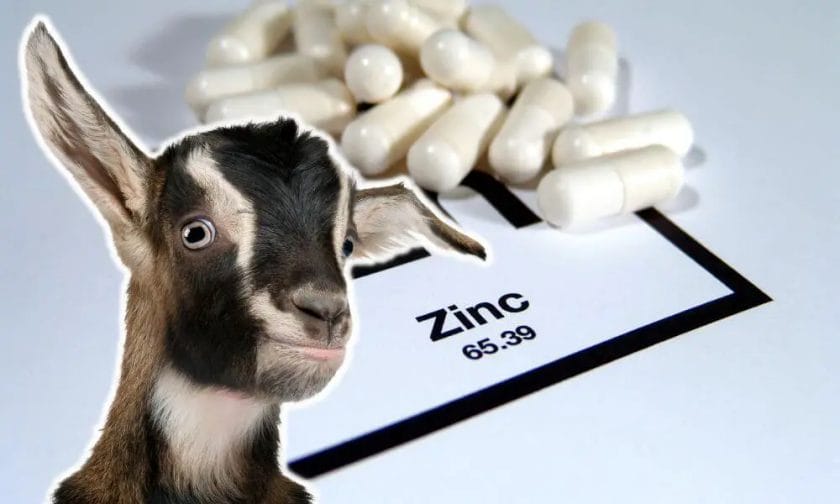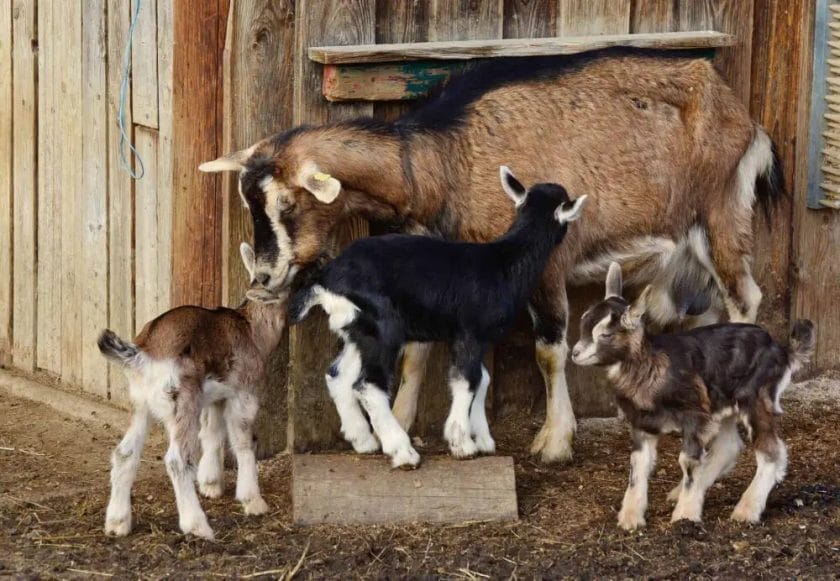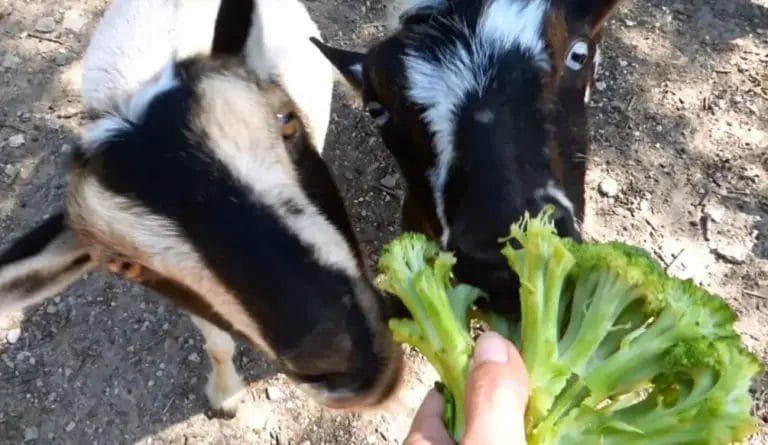Have you ever wondered if goats can have horse treats? Well, the answer is not quite straightforward. While goats can certainly eat some horse treats, it’s crucial to choose wisely and consider their nutritional needs. Some horse treats may contain ingredients that are harmful to goats, such as high levels of sugar or grains. Therefore, it’s best to consult with a veterinarian or animal nutritionist before giving horse treats to goats to ensure their health and well-being.

The Pros and Cons of Feeding Goats Horse Treats
When it comes to feeding goats, there are a variety of options available. One intriguing option that some goat owners consider is feeding them horse treats. However, before deciding to incorporate these treats into a goat’s diet, it is important to consider the pros and cons.
Pros of Feeding Goats Horse Treats
1. Nutritional Variety: Horse treats can provide goats with a different source of nutrients and flavors. They often contain a blend of grains, fruits, and vegetables that may not be present in their regular diet. This can help diversify their nutritional intake and add some excitement to their feeding routine.
2. Enrichment and Stimulation: Horse treats can be used as a form of enrichment for goats. Goats are curious animals and enjoy exploring new tastes and textures. Introducing horse treats can keep them mentally stimulated and prevent boredom, especially if they are being kept in a confined space.
3. Positive Reinforcement: Feeding horse treats to goats can be a way to reinforce positive behavior, especially during training sessions. Goats can quickly learn to associate the treats with good behavior, making it easier to train them and build a stronger bond with their owners.
4. Availability and Convenience: Horse treats are widely available in pet stores and feed supply shops, making them easily accessible for goat owners. They are also convenient to carry and can be used as a quick snack or reward during outdoor activities or shows.
Cons of Feeding Goats Horse Treats
1. Digestive Upset: Goats have a sensitive digestive system, and introducing new foods abruptly can cause digestive upset, including diarrhea and stomach discomfort. Horse treats may contain ingredients that do not agree with goats and can lead to gastrointestinal issues. It is important to introduce them gradually and monitor the goat’s reaction closely.
2. Nutritional Imbalance: While horse treats can offer some nutritional benefits, they are not formulated specifically for goats. Goats have different dietary requirements compared to horses, and relying heavily on horse treats can lead to an imbalance in their overall nutrition. It is essential to prioritize a balanced diet that meets their specific needs.
3. Dental Health Concerns: Horse treats are designed for horses, which have different dental structures compared to goats. Some horse treats may be too hard or large for goats to consume comfortably. This can pose a risk of dental issues, such as tooth fractures or wear, if the treats are not appropriately sized or formulated for goats.
4. Cost Considerations: Horse treats can be more expensive compared to traditional goat feed. Feeding goats horse treats regularly can add up in terms of cost, especially for larger herds. It is important to consider the financial implications before incorporating them into the goat’s diet.
In Summary
Feeding goats horse treats can offer certain benefits, such as nutritional variety, enrichment, positive reinforcement, and convenience. However, it is crucial to be aware of the potential drawbacks, including digestive upset, nutritional imbalances, dental health concerns, and cost considerations. If you decide to feed your goats horse treats, do so in moderation and ensure they are introduced gradually to minimize any adverse effects. Consulting with a veterinarian or animal nutritionist can also provide valuable guidance in determining the suitability of horse treats for your goats’ diet.

Alternative Treat Options for Goats: Safe and Healthy Choices
Goats are curious and intelligent animals that thrive when provided with a varied diet. While their main source of nutrition should come from grass, hay, and grains, it is important to supplement their diet with treats to keep them mentally stimulated and satisfied. However, not all treats are safe or healthy for goats. In this section, we will explore some alternative treat options that are both safe and beneficial for goats.
1. Fruits and Vegetables:
Fruits and vegetables can be a great addition to a goat’s diet, providing them with essential vitamins and minerals. Some safe options include apples, carrots, bananas, and watermelon. However, it is important to remember that treats should only make up a small portion of their overall diet, so moderation is key.
2. Herbs and Leaves:
Goats have a natural affinity for browsing on leaves and foliage. Offering a variety of fresh herbs such as mint, basil, and parsley can be a healthy treat option. Not only do these herbs add flavor to their diet, but they also have medicinal properties that can aid in digestion and overall health.
3. Grain Treats:
Grain treats are a popular choice among goat owners, but it is essential to choose the right type of grain. Avoid feeding them grains that are high in carbohydrates and sugars, as this can lead to digestive issues. Instead, opt for low-carbohydrate grains such as oats or barley. These can be given in small quantities as a tasty snack.
4. Tree Branches and Bark:
Goats love to chew on tree branches and bark, and it can provide them with a source of entertainment as well as natural roughage. However, it is crucial to ensure that the branches come from non-toxic trees such as apple, willow, or birch. Avoid offering branches from trees that are known to be toxic to goats, such as cherry or oak.
5. Commercial Goat Treats:
There are many commercial goat treats available in the market, but it is important to carefully read the ingredients before purchasing. Look for treats that are made from natural, organic ingredients and avoid those that contain artificial additives or excessive amounts of sugar. Treats specifically formulated for goats can be a convenient and safe option.
6. Homemade Treats:
If you prefer to make treats for your goats at home, there are several simple and nutritious recipes you can try. Some ideas include homemade goat cookies made with oats, molasses, and carrots or homemade herbal treats incorporating beneficial herbs like rosemary or thyme. Just be sure to avoid using ingredients that are harmful to goats, such as chocolate or onions.
7. Water Treats:
Hydration is essential for the overall health of goats. Adding treats to their water can encourage them to drink more. You can try adding a small amount of apple cider vinegar or herbal infusions, such as chamomile or peppermint, to their water. These additions not only provide a refreshing change but also have potential health benefits for the goats.
In summary, feeding goats safe and healthy treats is an excellent way to provide them with mental stimulation and variety in their diet. Fruits, vegetables, herbs, grain treats, tree branches, commercial goat treats, homemade treats, and water treats are all viable options. Remember to always introduce new treats gradually and in moderation to avoid any digestive issues. By offering a balanced and diverse treat selection, you can ensure the well-being of your goats and enhance their overall quality of life.

How to Introduce Horse Treats to Goats: Tips and Advice
Horse treats are not only enjoyed by horses, but they can also be a tasty and nutritious snack for goats. However, introducing horse treats to goats can be a bit of a challenge, as goats have different preferences and dietary needs. It is important to introduce horse treats to goats gradually and to choose treats that are safe for them to consume. In this section, we will provide you with some valuable tips and advice on how to successfully introduce horse treats to goats.
1. Start with Small Portions
When introducing horse treats to goats, it is best to start with small portions. Goats have sensitive digestive systems, so it is important to gradually introduce new foods to avoid upsetting their stomachs. Begin by offering a small piece of a horse treat and observe how the goat reacts. If the goat shows no signs of distress and enjoys the treat, you can gradually increase the size of the portion over time.
2. Choose Suitable Horse Treats
Not all horse treats are suitable for goats. It is important to choose treats that are safe and appropriate for the dietary needs of goats. Avoid treats that contain ingredients that are toxic to goats, such as chocolate, caffeine, or certain herbs. Opt for treats that are made with natural ingredients and do not contain any harmful additives. Additionally, consider the size and texture of the treats. Treats that are too large or hard may pose a choking hazard for goats.
3. Monitor the Goat’s Reaction
As you introduce horse treats to goats, closely monitor their reactions. Pay attention to any signs of digestive upset or adverse reactions. If a goat shows any signs of discomfort, such as bloating, diarrhea, or vomiting, discontinue offering the treats and consult a veterinarian. Some goats may have dietary sensitivities or allergies, so it is important to be aware of any negative reactions and adjust accordingly.
4. Use Treats as Training Tools
Horse treats can be a useful tool for training goats. They can be used to reward good behavior or to encourage goats to perform certain actions. When using treats for training, be consistent and reward the desired behavior immediately. This will help the goats associate the treat with the behavior and reinforce the training process.
5. Limit Treat Intake
While horse treats can be a tasty snack for goats, it is important to limit their intake. Goats have specific dietary requirements and their main source of nutrition should come from hay, fresh water, and a balanced goat feed. Treats should be given sparingly and in moderation to prevent nutritional imbalances or weight gain.
In summary, introducing horse treats to goats requires careful consideration. Start with small portions, choose suitable treats, monitor their reactions, use treats for training, and limit their intake. By following these tips and advice, you can safely introduce horse treats to goats and provide them with an occasional tasty snack.
The Importance of a Balanced Diet for Goats: What to Consider
When it comes to raising healthy and productive goats, a balanced diet is absolutely essential. Just like humans, goats require a variety of nutrients to thrive and maintain optimal health. Providing them with the right combination of feed and supplements can help prevent nutritional deficiencies and promote overall well-being. In this section, we will explore the importance of a balanced diet for goats and what factors to consider when formulating their diet.
Nutritional Needs of Goats
Before we delve into the specifics of a balanced diet, it’s important to understand the nutritional needs of goats. These animals are ruminants, meaning they have a unique digestive system that allows them to break down and utilize fibrous plant materials. A goat’s diet should consist mainly of roughage, such as hay or pasture grass, supplemented with grains and minerals.
Key nutrients that goats require include:
- Protein: Goats need protein for growth, reproduction, and milk production. Good sources of protein for goats include legumes, such as alfalfa or clover, and high-quality grasses.
- Fiber: Fiber is essential for proper digestion and helps prevent gastrointestinal issues in goats. Long-stemmed hay or pasture grass provides the necessary fiber for their diet.
- Energy: Goats require energy for various metabolic processes and physical activities. Grains, such as corn or oats, are excellent sources of energy for goats.
- Vitamins and Minerals: Goats need a wide range of vitamins and minerals to support their overall health. These include vitamins A, D, and E, as well as minerals like calcium, phosphorus, and selenium.
The Benefits of a Balanced Diet
Feeding goats a balanced diet offers numerous benefits. Here are a few key advantages:
- Improved Growth and Development: A well-balanced diet ensures that goats receive all the essential nutrients needed for healthy growth and development. This is especially important for young goats and pregnant or lactating does.
- Enhanced Milk Production: Dairy goats require a carefully balanced diet to produce high-quality milk. Adequate protein, energy, and minerals play a crucial role in milk production and composition.
- Strong Immune System: Proper nutrition is essential for a strong immune system in goats. A balanced diet provides the necessary vitamins and minerals to support immune function, helping goats ward off diseases and infections.
- Prevention of Nutritional Disorders: A lack of essential nutrients in a goat’s diet can lead to various nutritional disorders, such as vitamin deficiencies or mineral imbalances. A balanced diet helps prevent these disorders and ensures optimal health.
Considerations for Formulating a Goat’s Diet
When formulating a balanced diet for goats, several factors need to be considered:
- Age and Life Stage: The nutritional needs of goats vary depending on their age and life stage. Young goats require more protein and energy for growth, while lactating does have higher nutrient requirements for milk production.
- Breed and Size: Different goat breeds have different nutritional needs. Larger breeds may require more feed to meet their energy requirements, while smaller breeds may need a more concentrated diet.
- Forage Quality: The quality of the roughage provided, such as hay or pasture grass, plays a crucial role in a goat’s diet. Good quality forage ensures an adequate intake of fiber and nutrients.
- Supplements: Depending on the nutritional content of the forage available, goats may require additional supplements to meet their specific nutrient requirements. These supplements can include minerals, vitamins, or probiotics.
- Water Availability: Access to clean and fresh water is vital for goats. It helps with digestion, nutrient absorption, and overall hydration.
In summary, providing goats with a well-balanced diet is fundamental for their health, growth, and productivity. By understanding their nutritional needs and considering various factors when formulating their diet, you can ensure that your goats receive the optimal nutrition they require to thrive.
FAQs
Can goats have horse treats?
No, it is not recommended to give horse treats to goats. Goats have different nutritional needs and their digestive systems are different from horses. Feeding them horse treats can cause digestive issues and may not provide the necessary nutrients for their health.
Conclusion
In conclusion, while goats can eat a variety of treats, it is important to ensure that those treats are safe and suitable for their dietary needs. Horse treats, specifically formulated for horses, may not be the best choice for goats due to differences in nutritional requirements and potential ingredient issues.
Instead, it is recommended to provide goats with treats specifically designed for them or to stick to natural, goat-friendly options such as fruits, vegetables, and hay. Always consult with a veterinarian for guidance on the best treats and diet for your goats to maintain their health and well-being.
